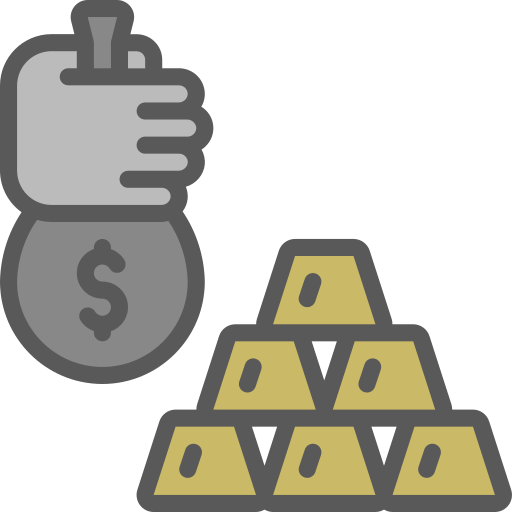As an investment, Gold can be hard to beat – but picking the wrong bullion dealer can cost you much more than time, money and stress. So how do you ensure you choose a dealer best suited to your needs?
 Bullion.Directory precious metals news 29 June, 2020
Bullion.Directory precious metals news 29 June, 2020
By Spencer Campbell
Founder / CEO at SE Asia Consulting
 In today’s interview I speak with David Mitchell, Founder and Non-executive at Indigo Precious Metals (IPM) a Precious Metals and Bullion dealer registered in Singapore, Malaysia and London.
In today’s interview I speak with David Mitchell, Founder and Non-executive at Indigo Precious Metals (IPM) a Precious Metals and Bullion dealer registered in Singapore, Malaysia and London.
Now ordinarily if you were to ask a bullion dealer “how to pick a bullion dealer” you’d expect to get some pretty heavily weighted answers. However IPM are a broker that both SEAC and I have personally worked with in the past, meaning we’ve got first-hand experience of the integrity and trust at the heart of this company. IPM are also one of Bullion.Directory’s top-rated bullion dealers, not just locally but with international and offshore clients.
With this being said we are happy to extend this question out to David on this occasion, so without further ado lets get to the questions facing investors when picking a gold bullion dealer…
Can you give us an overview of what precious metal investors should look for when choosing a Gold Bullion Dealer?
 As a first step, decide whether you want to buy online or locally from a bullion store within your own city or town.
As a first step, decide whether you want to buy online or locally from a bullion store within your own city or town.
When buying from a local bullion dealer store you are likely going to be paying considerably higher prices than when buying from an online store, due to the high overhead costs involved with retail operations.
Online dealers do not have all the costs associated with bricks and mortar stores, including higher insurance costs, ground rents, higher levels of staffing required and stock displays etc.
As a second step, investors must consider is the reputation and track record of the bullion dealer, including their overall international coverage, the number of years they have successfully been in business, latest client reviews and importantly, whether they come from genuine and independent review sites.
We have noticed lately some ‘non-independent’ review websites that have direct links back to bullion dealers who are scoring themselves very high while pushing the competition lower, an unfair practice and one that shows the unprofessional nature of some of the people behind the sites in question.
Do Gold Bullion Dealers need to be licensed?
 I believe it’s extremely important for bullion dealers to be fully licensed under an official local regulator for better governance.
I believe it’s extremely important for bullion dealers to be fully licensed under an official local regulator for better governance.
When considering the funds involved with investing in precious metals and combined with the sheer amount of scams that exist across the market, investors should feel reassured that regulators have and are watching their registered dealers for any illegal activities.
It is important that such certification is prominently displayed and available for inspection at all times.
However it must be said that if a dealer is a ‘registered dealer’ this does not automatically confirm that this bullion business is conducting itself in an honest and proper fashion and representing clients in a professional manner.
What can a gold buyer look for in terms of pricing when comparing the different sellers out there and can you give us an example of how to review them in layman terms?
 A well established bullion dealer will have numerous long term buying contracts with refiners and mints globally.
A well established bullion dealer will have numerous long term buying contracts with refiners and mints globally.
Alongside these contractual relationships, they will also have purchase contracts with some of the worlds largest wholesalers.
All bullion dealers are effectively sourcing their physical precious metals from the same sources around the world. Whilst prices across different bullion dealers can vary quite considerably, both locally and internationally, this is purely a function of the profit margins that they have set in place versus the cost of operating their business in the first place.
This of course, is alongside the logistics costs of moving the bullion products to their local markets.
Be careful to note that some dealers will misrepresent themselves with hidden charges and marketing headlines highlighting that their precious metals can be purchased well below the local competition’s price and even sometimes, well below their all-in buying and logistics costs.
This then begs the question, how can a dealer sell precious metals below actual wholesale costs associated with delivering the bullion products to the local market in the first place? These pricing scams are easy to spot as they will offer prices that are well out of the price margins biggest local dealers.
You should also never buy precious metals on eBay or other such e-commerce platforms that do not ensure the seller is indeed a regulated bullion dealer.
How do clients then recognise mispricing, when the dealer in question is offering prices that are a complete outlier to the local competition prices?
My recommendation is always that if something is too good to be true then further and deeper due diligence is required.
That said, there are certain times throughout the course of the year when dealers are able to source bullion more cost effectively and can therefore offer cheaper prices to their customers.
These buying opportunities are quite irregular and customers should indeed take advantage of them.
What about Gold bar brands, are they important and what are the implications of buying a brand that’s not say LBMA good delivery?
 When it comes to LBMA Good Delivery, it really does depend on the local country in question and whether there are zero tax implications on the purchase of such investment products.
When it comes to LBMA Good Delivery, it really does depend on the local country in question and whether there are zero tax implications on the purchase of such investment products.
Investment gold is often free of Value Added Tax (VAT) or Goods and Services Tax (GST), but such taxes do still exist in some countries. VAT and GST can also differ from product to product, for example between coins and bars, so it is very important to check your local tax rules.
Singapore for example has constructed its tax laws around favouring only LBMA registered mints and refineries, but that is not the case globally.
Europe, UK, USA, Middle East and Australia to name a few, have constructed their tax laws to recognise purity of the investment bars and have no regard to the LBMA list of refineries from a tax perspective.
Investment grade covers gold bars, wafers and coins with a purity of at least 0.995% and up to 99.999%, which are supplied in weights that are acceptable to bullion markets.
Can you walk us through what happens when a client decides he wants to sell gold to a Gold Bullion Dealer?
 Bullion dealers should always offer liquidity to their clients on the sale of their products. Buy-back prices are dictated by the overall supply-demand picture within the local market, availability and costs of currency (cash or credit) and other varying costs.
Bullion dealers should always offer liquidity to their clients on the sale of their products. Buy-back prices are dictated by the overall supply-demand picture within the local market, availability and costs of currency (cash or credit) and other varying costs.
Most dealers will demonstrate a buy-back price online, but clients should always call the dealers in question and request a live price.
If the client holds the metals in their own possession then the bullion dealers will insist on assaying the products, selling a few bars or coins is not going to be an issue, but if the client owns substantial holdings the costs of processing and assaying the sale can be a little burdensome.
At Indigo Precious Metals Group, we always recommend to our clients that they should hold their metals in their own vaulted account in a well recognised ‘A rated’ vaulting provider with independent auditing as this alleviates any issues of assaying metals, provides immediate liquidity when required and it is very quick to ascertain the best sales price possible.
We refer to this as the ‘chain of custody’, once custody is broken the goods sold need to be tested.
Many bullion dealers including ourselves will offer up a variety of selling opportunities to our clients that allows them to obtain the very best possible prices. Be sure to communicate with your dealer and ask for the best advice.
At Indigo Precious Metals Group there are two options:
- For clients wanting immediate liquidity and wish to sell an amount of bullion to us, these buy-back prices are dictated by overall supply-demand in the local market, availability and cost of currency (cash or credit) and other varying costs.
- We advise our clients on when is the best time to sell. For clients who wish to sell their metals but are not necessarily in a rush to do so, these bullion products may be offered for sale via our website so that they can achieve the best retail prices. Indigo Precious Metals Group will take a small margin, but as a client you will obtain both the metal price plus the product margin.
It must be highlighted that this second option does not obviously provide immediate liquidity and so some patience is required to connect you with a buyer online. This could be instant or a few weeks and many of our clients do prefer this method and are very happy with the prices they achieve.
Getting to know your local bullion dealer and building a long term relationship together is my key recommendation.
What can you tell us to look out for when it comes to companies that are just looking to scam unsuspected buyers?
 There are always several unreputable dealers in every market or those who are not entirely honest. That is sadly the nature of the beast I’m afraid.
There are always several unreputable dealers in every market or those who are not entirely honest. That is sadly the nature of the beast I’m afraid.
These dealers vary from outright scams to those who misrepresent their pricing by hiding costs and delivery charges.
As I raised in point 3 above, all bullion dealers invariably source and purchase large consignment stocks from the same sources and hence very similar wholesale prices.
If a local dealer is offering prices that are totally incongruent or contradictory with the prices of their local competition then further investigation is required. If something is too good to be true then more due-diligence is needed.
I know of one particular dealer that offers very cheap headline pricing but then allocation and delivery of the physical metals comes with high additional charges that are not already priced in. The trouble with this, is that the client has at that point has already made a purchase with the dealer and they are then forced to absorb these extra costs without recompense.
Find a reputable dealer you can trust and build a relationship with who actively advises and works on your behalf, they will always look after your best interests.
To contact the team at Indigo Precious Metals Group you can send them an email to SalesSG@ipm.capital for more details.
**SEAC does not endorse the products/services that the interviewees offer. Our website Q&A is merely to encourage the discussion of topics and exchange of views for education and knowledge.
This article was originally published hereBullion.Directory or anyone involved with Bullion.Directory will not accept any liability for loss or damage as a result of reliance on the information including data, quotes, charts and buy/sell signals contained within this website. Please be fully informed regarding the risks and costs associated with trading in precious metals. Bullion.Directory advises you to always consult with a qualified and registered specialist advisor before investing in precious metals.












 Material provided on the Bullion.Directory website is strictly for informational purposes only. The content is developed from sources believed to be providing accurate information. No information on this website is intended as investment, tax or legal advice and must not be relied upon as such. Please consult legal or tax professionals for specific information regarding your individual situation. Precious metals carry risk and investors requiring advice should always consult a properly qualified advisor. Bullion.Directory, it's staff or affiliates do not accept any liability for loss, damages, or loss of profit resulting from readers investment decisions.
Material provided on the Bullion.Directory website is strictly for informational purposes only. The content is developed from sources believed to be providing accurate information. No information on this website is intended as investment, tax or legal advice and must not be relied upon as such. Please consult legal or tax professionals for specific information regarding your individual situation. Precious metals carry risk and investors requiring advice should always consult a properly qualified advisor. Bullion.Directory, it's staff or affiliates do not accept any liability for loss, damages, or loss of profit resulting from readers investment decisions.

Leave a Reply